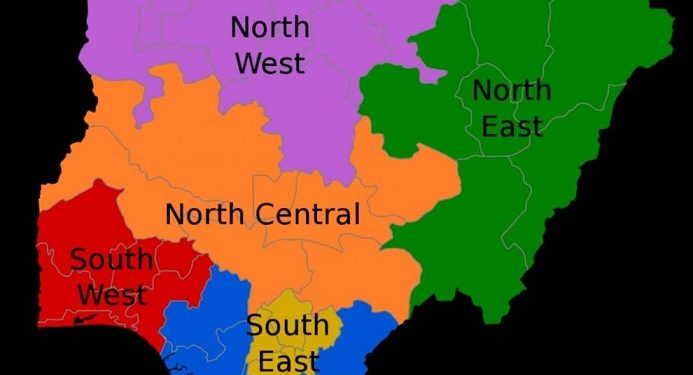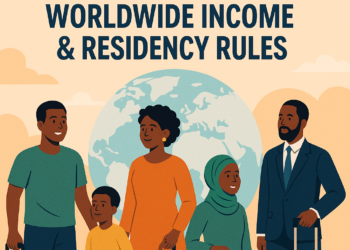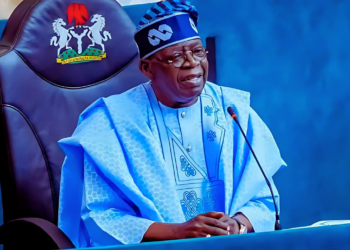In the aftermath of the screening and confirmation of 48 ministerial nominees by the Nigerian Senate, a storm of discontent has erupted, primarily from leaders of the Igbo community.
Accusing the ruling All Progressives Congress (APC) of perpetuating marginalization, the South-Eastern region claims it has been deliberately excluded from the political landscape of the country.
The nomination list has ignited anger due to the perceived unequal distribution of ministerial slots among Nigeria’s geopolitical zones.
Some contexts to the story: The recent appointments have raised concerns about the equitable representation of all regions within the government. While the Constitution mandates each of the 36 states and the Federal Capital Territory to receive one ministerial nominee, extra slots were granted to certain regions.
The North-West and South-West zones received three additional ministers each, the North-East and North-Central obtained two extra slots, while the South-South secured two more. Surprisingly, the South-East was left without any additional nominations, fuelling claims of exclusion and further deepening the existing sense of marginalization among the Igbo leaders.
More instances of exclusion: The South-East region of Nigeria has a history fraught with instances of exclusion and marginalization from various facets of national affairs. One notable area of contention is the distribution of key political positions and government appointments.
Over the years, the region has often found itself underrepresented in key decision-making bodies, leading to grievances among its residents. This has fuelled perceptions of systemic bias against the Igbo community, with many feeling overlooked in favour of other regions.
Economic disparities have also contributed to the sense of marginalization. Despite being a significant economic hub with bustling trade and commerce, the South-East has often lagged behind in terms of infrastructural development and resource allocation.
This economic neglect has hindered the region’s potential for growth and hindered its ability to fully contribute to the nation’s development. The lack of major federal projects and investments in the South-East has exacerbated the perception that the region is being unfairly marginalized.
Furthermore, the security landscape has also spotlighted the South-East’s marginalization. The region’s struggles with security challenges, including the emergence of separatist movements, have at times been met with a heavy-handed response from the government.
This has led to allegations of disproportionate use of force, further straining the relationship between the federal government and the Igbo community. The perceived neglect in addressing the root causes of these security concerns has deepened the feelings of exclusion and frustration among the region’s residents.
In light of these instances of exclusion and marginalization, the South-East continues to grapple with the need for greater representation, development, and recognition within the broader Nigerian context.
Reactions from stakeholders
In the wake of these developments, prominent figures within and outside the South-East have expressed their grievances and called for corrective actions. Some have accused political leaders of exacerbating ethnic tensions and fostering a climate of inequality and distrust.
Former President Goodluck Jonathan (April 2023): At a public lecture on national unity and inclusivity held in Abuja he said, “The continuous perception of marginalization in the South-East is a cause for concern. Every region should have a sense of belonging and equal participation in national affairs. It’s crucial to address these concerns to foster national unity and harmony.”
Governor Nyesom Wike of Rivers State (June 2023): In a statement issued in a press conference addressing regional disparities in political appointments, he said “The marginalization of the South-East is a reflection of a broader issue in our nation’s politics. We must strive for fairness and inclusivity, allowing every region to have a fair share of opportunities. It’s in the best interest of Nigeria to rectify these imbalances.”
Chief Femi Fani-Kayode (May 2023): In comment posted on social media, emphasizing the need for fair representation and unity in Nigeria, he said, “The disregard for the South-East’s interests in recent appointments shows a troubling pattern of exclusion. Our unity as a nation depends on equitable representation and fairness. These actions only serve to deepen the divide between regions.”
Senator Abaribe (April 2023): During a Senate plenary session, while discussing national unity and the allocation of federal appointments, he said, “We cannot ignore the glaring discrepancies in political appointments. The South-East deserves better than being sidelined time and again. It’s disheartening to see the region continually pushed to the margins of national governance.”
Ohaneze Ndigbo (July 2023): In official statement released by the Igbo socio-cultural organization during a press conference addressing the marginalization of the South-East, they said, “The consistent marginalization of the South-East is unacceptable. We call on the government to adhere to the principles of federal character and address these imbalances. Our commitment to a united Nigeria should reflect in actions that promote inclusivity.”
Governor Dave Umahi of Ebonyi State (June 2023): “The South-East’s grievances cannot be ignored any longer. We need genuine efforts to bridge the gap and ensure that our people’s voices are heard. The continuous neglect is detrimental to our national unity.” The former governor of Ebonyi State remark during a public rally on regional development and unity held in Abakaliki.
Senator Rochas Okorocha (May 2023): During a television interview discussing political developments and national unity, he said, “It’s disheartening that our region is consistently overlooked. We must strive for unity and equitable representation in our political processes. Without addressing these concerns, we risk perpetuating feelings of resentment and division.”
Chukwuma Soludo (June 2023): “The South-East’s exclusion raises questions about the principles of unity and fairness in our nation. We need policies that promote equal opportunities for all regions to thrive and contribute to Nigeria’s progress.” A Statement he made during a symposium on national integration and inclusive governance organized by a civil society group in Enugu.
These comments were made in various settings, including public lectures, press conferences, interviews, and official statements, highlighting the concern for equitable representation and unity within Nigeria.
These prominent individuals and voices from different walks of life have echoed concerns about the marginalization of the South-East in various aspects of national affairs, emphasizing the need for equitable representation and inclusive policies.
As Nigeria navigates its political landscape, it remains to be seen whether the dissatisfaction expressed by various leaders will translate into political action that could potentially reshape the nation’s political landscape. As Nigeria faces critical decisions, the response to these imbalances may play a significant role in shaping its political trajectory.












